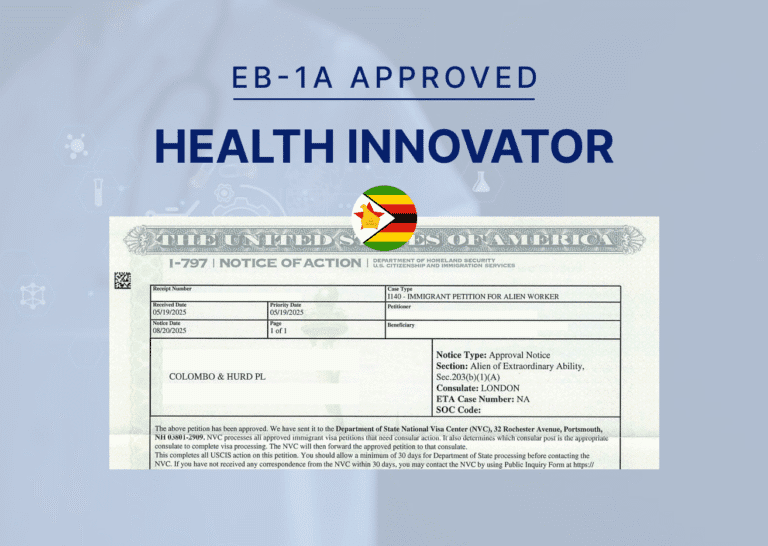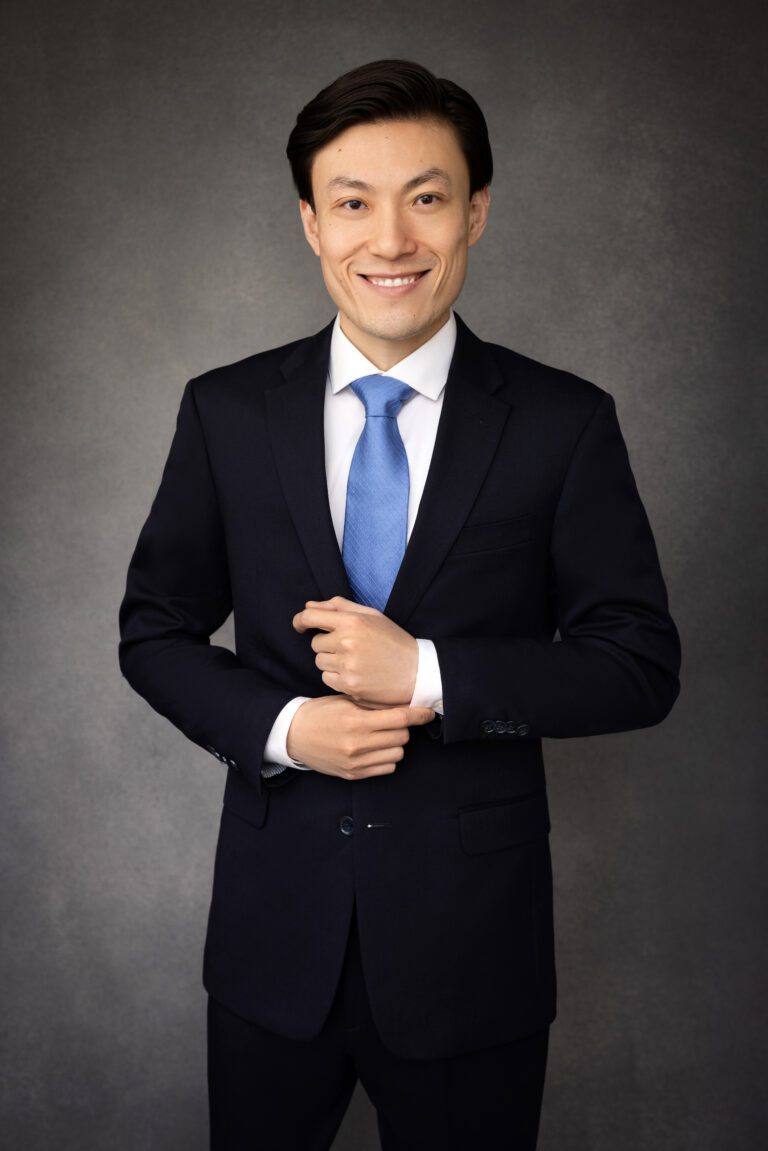Public Health Innovator
In 2008, in a resource-limited district of Zimbabwe, one physician stood alone as the sole doctor for more than 140,000 people. At that time, just 15 patients were receiving life-saving HIV treatment, despite hundreds of others in need of care. Faced with overwhelming need and scarce resources, our client designed an outreach model that delivered care directly to remote villages. What began as a local solution grew into a national system and eventually influenced global policy, illustrating exactly what the Employment-Based First Preference Extraordinary Ability (EB-1A) classification is meant to recognize.
Our client’s journey, rooted in rural clinics but reaching into international health systems, shows how extraordinary ability is defined both by accolades and by innovations that transform lives. It also highlights why the EB-1A pathway is essential for immigrant leaders who bring expertise to strengthen American healthcare.
With this foundation, Mr. Jason Qiu, Colombo & Hurd Immigration Attorney, successfully secured approval of this EB-1A Petition on August 20, 2025. This approved EB-1A Petition validated years of innovation and opened the door for our client to expand his vision in the United States.

EB-1A for Public Health Innovator Shaping the Future of Public Health and Global Healthcare
From his earliest days as a rural clinician to his current role as a global health leader, our client has remained committed to closing gaps in access to care. His story is one of turning obstacles into scalable solutions, with decades of experience as a clinician, public health innovator, and researcher. His achievements include:
- Designing digital health platforms, now used in nearly 1,000 facilities, improving both care delivery and data accuracy.
- Creating an empathy-driven model that increased return-to-care rates for HIV patients by 50%, earning national recognition.
- Leading health financing reforms that mobilized millions in domestic funding, later shared internationally as a model.
- Contributing to international guidelines and policy frameworks adopted by governments and health organizations worldwide.
Looking ahead, he plans to continue contributing to healthcare and public health innovation by implementing technology-driven learning health systems that incorporate advanced analytics to optimize healthcare deliver, allowing healthcare systems to adapt and improve in real time in order to enhance the viability of rural hospitals, thereby reducing healthcare disparities and improving access to care.
These milestones reflect the qualities USCIS looks for in EB-1A Petitions: originality, leadership, and impact of national or international significance.
Establishing Extraordinary Ability
Despite this extraordinary record, USCIS issued a Request for Evidence (RFE), questioning whether our client’s contributions satisfied the strict evidentiary framework for the EB-1A category. The agency raised doubts around his awards, published recognition, and whether his innovations qualified as “original contributions of major significance.”
The challenge was not about the impact of his work, which had been celebrated by ministries, global donors, and international organizations, but about translating that impact into the evidentiary language required for a successful EB-1A for public health innovator.
As Mr. Qiu explained, the difficulty lay in bridging the gap between the client’s extraordinary achievements and the officer’s interpretation of the evidence:
“The challenge in this case was never to restate the client’s long list of accomplishments, accolades, and experience. Rather, the critical task here was to underscore the impact of his extraordinary career by translating the wealth of available evidence into compelling terms for this officer, while guiding the officer to correct several misunderstandings from the RFE.”
Turning Health Achievements into Legal Recognition
Our legal team’s approach was to bridge the gap between extraordinary contributions and USCIS’s evidentiary standards. Each area of scrutiny: awards, publications, contributions, and leadership were reframed to highlight how his achievements aligned directly with EB-1A requirements.
- Awards: Prestigious national and global recognitions were documented, supported by independent expert letters that emphasized their selectivity and importance.
- Published Material: Verified media coverage from respected health outlets demonstrated both visibility and acknowledgment of his pioneering work.
- Original Contributions: Expert evaluations and adoption records showed how his digital health platforms, empathy-driven models, and financing reforms became national standards and international references.
- Leadership Roles: His designation as key personnel in U.S.-funded programs and endorsements from leading organizations confirmed his indispensable leadership.
Detailing the strategy, Mr. Qiu highlighted that success came from showing how every piece of evidence directly met the EB-1A standards:
“What made this case successful was the careful presentation and contextualization of each piece of evidence to directly align with the requirements of the EB-1A criteria. By focusing on demonstrating how the elements of each criterion were plainly met, our strategy aimed to make the adjudicating officer’s job easy.”
EB-1A Approval: Honoring a Career of Innovation and Impact
USCIS ultimately approved the Petition, formally recognizing him as a public health innovator at the top of his field. The approval validated years of effort and affirmed that his career achievements meet the highest standards of national and international acclaim.
For our client, this was more than a legal victory. It was an opportunity to expand his mission in the United States, from advancing digital health systems to creating equitable models of care for underserved populations.
Mr. Qiu explained that the decision carries meaning because it allows the client to expand innovations that will directly benefit American communities:
“This approval is meaningful primarily because of the opportunity it creates for our client to continue expanding his innovative work in the U.S., and to bring his expertise, dedication, and compassion to help meet critical needs in U.S. healthcare.”
Wondering if You Qualify?
Your background may align with the requirements for the EB-1A.
Advancing Public Health Innovation in the United States
With permanent residency secured, he is now positioned to extend his vision in the United States. His plans include:
- Developing modular digital platforms to streamline data systems for rural hospitals.
- Launching Learning Health System hubs that use artificial intelligence to support clinical decisions.
- Collaborating with universities and policymakers to reduce disparities in chronic disease management.
These ambitions are the continuation of the same mission that began in rural Zimbabwe: ensuring no community is left behind. By applying the innovations that transformed care abroad, he is ready to help build stronger, more resilient systems in the U.S.
The EB-1A for public health innovators is about honoring leaders who create scalable solutions that improve health equity and resilience across entire systems. This case demonstrates how extraordinary professionals, when given the chance, can bring lasting benefit to communities in the United States and beyond.
At Colombo & Hurd, we guide extraordinary innovators like our client on their route to permanent residency, helping them contribute their vision, expertise, and leadership to the future of American society.
“What made this case successful was the careful presentation and contextualization of each piece of evidence to directly align with the requirements of the EB-1A criteria.”


